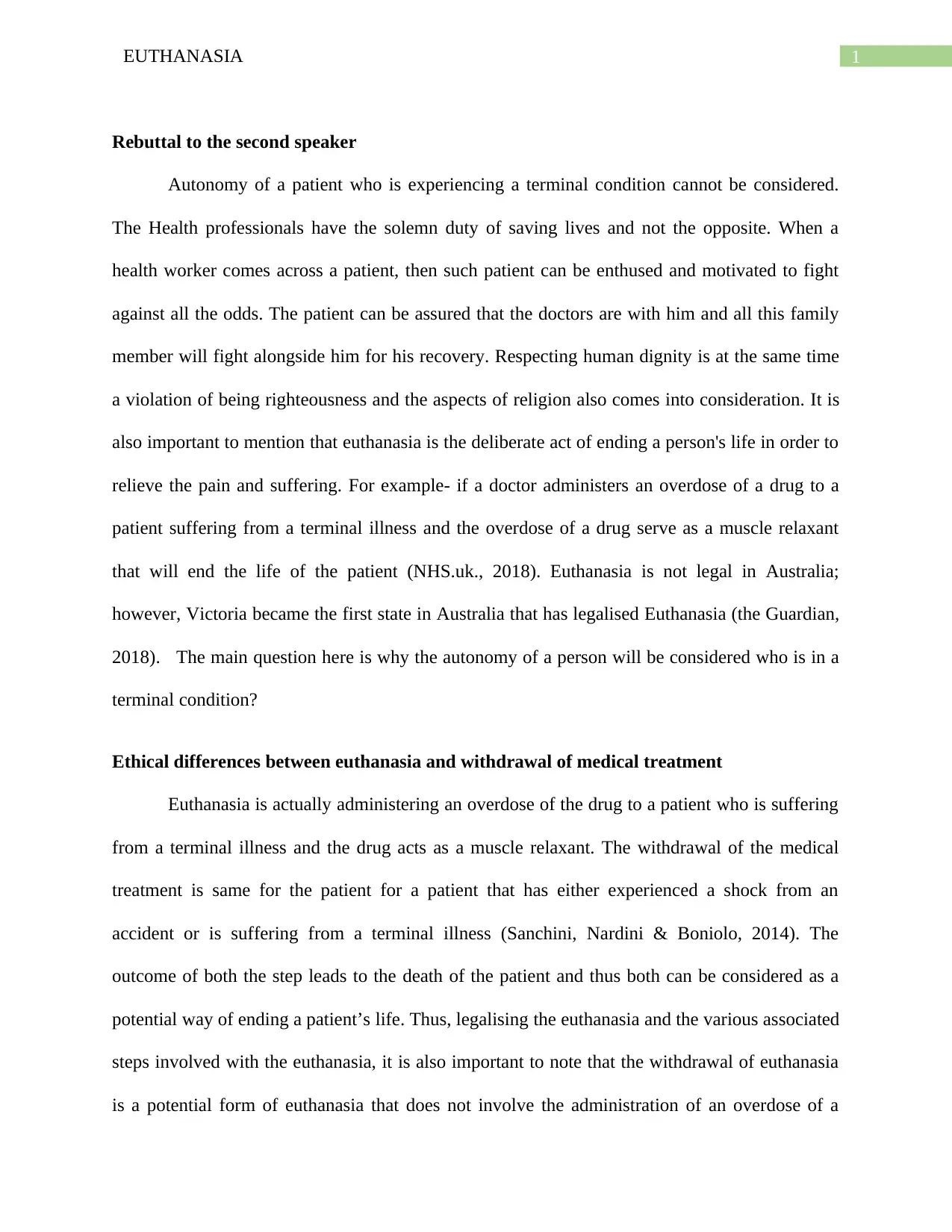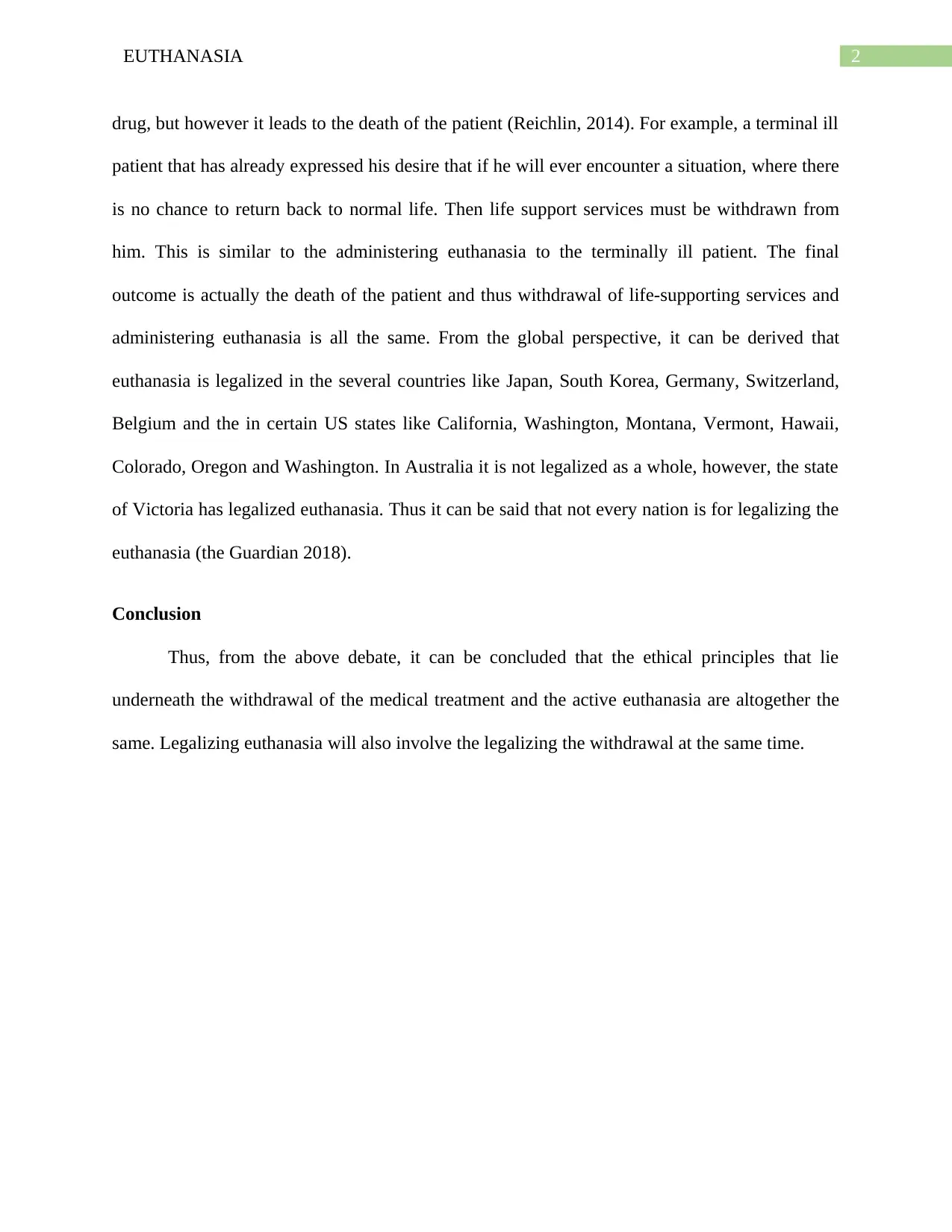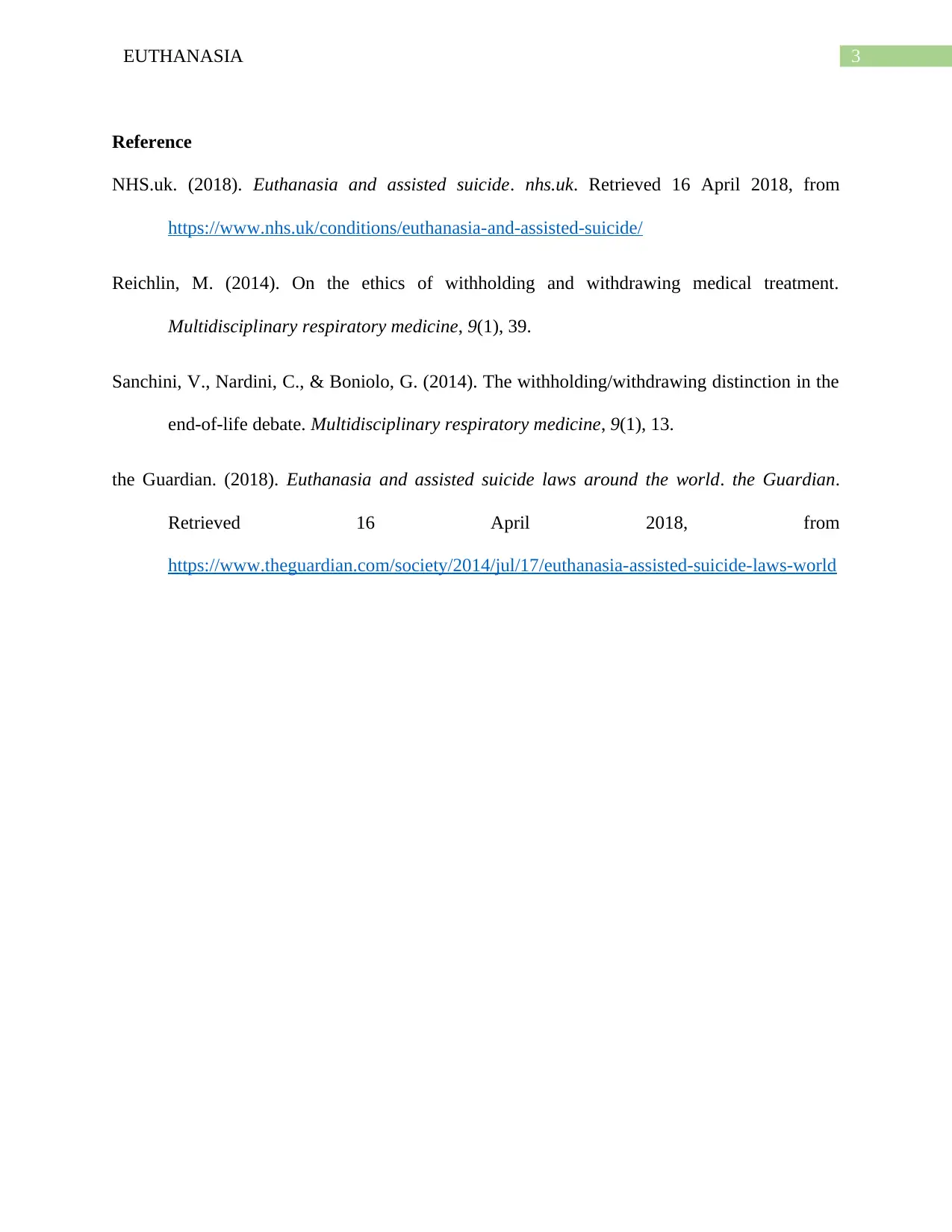Euthanasia Debate: Rebuttal on Patient Autonomy & Ethical Differences
VerifiedAdded on 2023/06/13
|4
|751
|358
Discussion Board Post
AI Summary
This discussion board post presents a student's rebuttal in a debate about euthanasia, arguing against the notion that a patient's autonomy should be the sole deciding factor in end-of-life decisions. It emphasizes the ethical responsibilities of healthcare professionals to preserve life, respect human dignity, and consider religious perspectives. The rebuttal distinguishes between euthanasia, defined as administering a lethal dose of medication, and the withdrawal of medical treatment, arguing that both ultimately lead to the same outcome. The post also touches on the legal status of euthanasia in various countries, including Australia, and concludes that the ethical principles underlying both euthanasia and the withdrawal of treatment are essentially the same, suggesting that legalizing one would effectively legalize the other. The student uses NHS and Guardian references to support their arguments.
1 out of 4











![[object Object]](/_next/static/media/star-bottom.7253800d.svg)